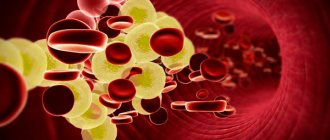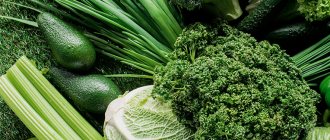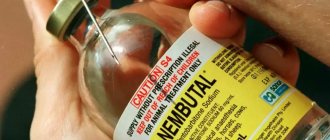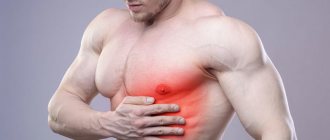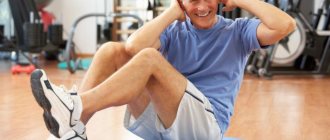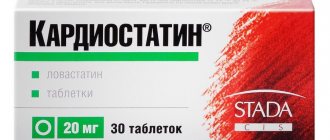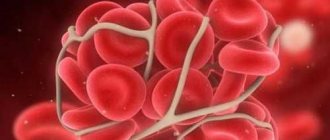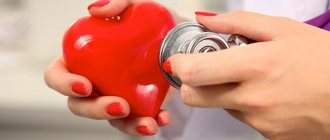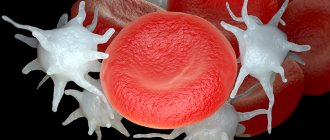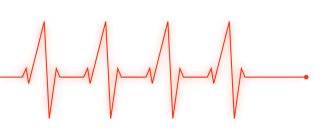What pills help with heart pain
June 28, 2021
12631
4.9
Content
- What kind of heart pills are there?
- Causes of heart pain
- Symptoms of a heart attack
- Top 5 best pills for heart pain
- Validol
- Nitroglycerine
- Corvalol
- Novo-Passit
- Cardiket
It is important to remember the main thing: if there is pain in the heart area, this symptom should never be ignored and you need to see a doctor as soon as possible to get examined. Only a doctor, having found out the cause of heart pain, can prescribe the necessary treatment. In addition, your home medicine cabinet should contain medications for heart pain that can, if necessary, relieve discomfort.
Pain in the heart is not a disease in itself, but only a symptom that indicates a number of problems: from dangerous conditions when the heart muscle is affected, to diseases of organs that are in close proximity to the heart (lungs, bronchi, pleura, stomach, lymph nodes, ligaments, muscles, bones). But in any case, enduring chest pain and ignoring it is very dangerous. You definitely need to find out the reason!
B vitamins: side effects
Before the formula was figured out, vitamins were called letters of the Latin alphabet as they were discovered: A, B, C, D, and so on. Now they have rational names based on their chemical structure. Vitamin A is retinol, vitamin K is phylloquinone, vitamin B2 is riboflavin, vitamin PP is nicotinic acid, etc. But in the old fashioned way we call them “A”, “Be” and “Tse”... How could it be otherwise, because vitamins are our old friends! But how well do we know them?
They say that every doctor has his own “favorite” drugs. This is true. The doctor knows some medications better, prescribes them first and sometimes takes them himself. And each doctor has his own favorite vitamins, which he will most likely recommend to you.
But then we come to the pharmacy - and our eyes widen. They offer a sea of vitamins in beautiful jars with bright labels! Entire shelves are occupied by them. But the doctor insisted on one single drug... Isn’t it better to buy THIS and THAT? Maybe the doctor hasn’t looked at the reference books for a long time? And the hand reaches out to the magic pills that catch your fancy.
But, wait, let's remember what the doctor advised. Do you know which vitamins doctors love especially dearly? Of course, B vitamins.
Why are they so popular with doctors?
The thing is that great hopes were placed on them in the eighties of the last century: it was believed that B vitamins reduce the level of homocysteine in the blood - an amino acid, the high level of which is directly related to heart and vascular diseases. Many studies have been conducted in different countries, and as a result, the effectiveness of these vitamins was considered ambiguous: “50 to 50.” Indeed, when patients take more effective medications, “vitamins” play only a supporting role. But doctors continue to prescribe them for various cerebrovascular pathologies (diseases of the blood vessels of the brain). Additional help for the body is not a hindrance, right?
Yes, modern, effective and inaccessible to most patients due to their high price, drugs act much faster. And of course, “vitamin therapy” is not so effective. But almost all drugs have a “dose-dependent” (the higher the dosage, the better) and a “chrono-dependent” (the longer the drug is taken, the longer the positive dynamics persist) effect.
At the same time, the undeniable advantage of vitamins is the price. When prescribing a drug, a doctor can be sure that the medicine will be taken as long as needed and will not empty the patient’s wallet. Many doctors, when prescribing group B, focus on this.
Get to know everyone by sight
You know the basic B vitamins for sure. These are the well-known B1, B6 and B12:
- B1
– (thiamine) actively participates in metabolism, restores peripheral nerve endings that regulate the functioning of the liver and heart. - B6
– (pyridoxine) strengthens the immune system, has a beneficial effect on skin diseases, and restores the nervous system. According to some data, 80 mg of vitamin B6 per day reduces the risk of myocardial infarction by 32%. - B12
– (cyanocobalamin) has a beneficial effect on the function of the liver and nervous system, and is involved in the restoration of metabolism. Vitamin B12 is effective in treating chronic fatigue syndrome in 50–80% of people.
But their less famous brothers deserve attention too.
- B2
– (riboflavin) participates in metabolism, strengthens the respiratory system, improves vision, cures skin diseases, and has a beneficial effect on the functioning of the nervous system. - B3
– (nicotinic acid) cures pellagra, improves water-salt metabolism, improves metabolism in the cells of the nervous tissue. - B9
- (folic acid, folacin, vitamin Bc) is extremely important for the development of the brain and nervous system of the fetus, it is also needed for the development of a breastfed child, and for adults, primarily for the normal functioning of the nervous system.
Do you get the general idea? Right! B vitamins are essential for diseases of the nervous system. Which of us has “nerves” in order? Now my head hurts, now my irritability has increased, now my back is “shot”, now I have problems with my memory...
B vitamins are called “neurotropic” because of their effect on the function of nerve cells. Some studies have shown high activity of this group in terms of pain relief in chronic pain syndromes and increasing the pain threshold in acute pain. Currently, more than a hundred studies have been published showing clinical improvement with the use of B vitamins in patients with pain syndromes.
When do B vitamins help?
Vitamins of this group are especially often prescribed to patients with back pain. Once you see a doctor with the complaint of “your back is stuck,” “shot in the air,” or “arm/leg is numb,” a prescription with the treasured trinity (B1+B6+B12) will be in your hands. Why? Because it has been repeatedly proven that it is these “magic” vitamins that influence nerve cells coming from sensitive receptors to the brain, as if “inhibiting” pain impulses.
If the nerve fiber itself, consisting of hundreds and thousands of processes of neurons (nerve cells), is damaged, then their successful “restoration” requires the same vitamins that work, laying proteins like bricks to recreate the fiber shell.
However, many neurologists remain skeptical about their therapeutic potential, believing that in many cases there is a placebo effect. The fact is that no one has ever been able to achieve a 100% effect in treatment when prescribing vitamins alone. Therefore, if you have back pain, consult a doctor, he will select the right combination of medications for you, including the B-complex.
In 2000 and 2002, the American Psychiatric Association published research in the American Journal of Psychiatry showing the effect of vitamin B12 deficiency on the occurrence of clinical depression in elderly patients. For many of them, antidepressants were not indicated, so vitamin complexes paired with diet and exercise gave good results. Given these data, many doctors began to actively prescribe B-complexes for the treatment of depression and achieve results.
Other studies have shown that pregnant women consuming foods rich in folic acid or taking adequate doses of folic acid and vitamin B12 significantly reduce the risk of developing neural tube defects. This is also the “gold standard” of pregnancy management throughout the world.
B1 deficiency also plays a big role in the development of alcoholic polyneuropathy, which in Russia is one of the most common forms of generalized damage to peripheral nerves.
The only questionable purpose of this group is still asthenic conditions, such as the notorious “chronic fatigue syndrome”. Too many diseases can be hidden under the guise of this seemingly innocent diagnosis. The man is tired... stress, lack of sleep and irregular nutrition have taken their toll. Take some vitamins and everything will go away? And they drink! Handfuls and kilograms!
...And we face the risk of overdose
When consuming excessive doses (three or more times the recommended daily intake) of B vitamins, intoxication develops. Hypervitaminosis of vitamins B1, B2 and B6 can cause fatty liver. Among the elements of group B, the most toxic are B6 and B12. And allergic reactions are observed mainly with their excess, as well as with an overdose of vitamins B1 and B2.
Thus, an excess of vitamin B1 causes symptoms in the form of allergic reactions and spasmodic headaches. Blood pressure decreases, fever, weakness, nausea appear, vomiting may occur, chills are replaced by a feeling of heat, tinnitus bothers you, severe sweating and dizziness appear.
With prolonged use of vitamin B6 in excess dosages, anemia develops, coordination of movements is impaired and numbness of the limbs appears.
Excess vitamin B12 leads to heart failure, pulmonary edema, vascular thrombosis due to increased blood clotting and anaphylactic shock. The heartbeat quickens, pain appears in the heart area, nervous disorders intensify, and allergic rashes appear on the skin in the form of hives.
As you can see, caution is needed even with such seemingly harmless drugs as vitamins. Therefore, it is best to consult a doctor for advice. And he will definitely tell you everything he knows about his “favorite” vitamins.
Valentina Saratovskaya
Photo thinkstockphotos.com
Products by topic: (vitamins)
What kind of heart pills are there?
The most important rule: pills for heart pain should be prescribed exclusively by a doctor who knows your diagnosis. It happens that you have to take several medications with different active ingredients. All pills for heart pain are divided into several groups.
- Nitrates.
Such drugs help if the heart hurts due to angina pectoris; they are prescribed to people who have had a heart attack. Nitrates dilate blood vessels and reduce blood pressure, therefore they are prohibited for hypotensive patients when there is a suspicion of cardiac tamponade, collapse and shock. - Peripheral vasodilators.
These heart medications improve blood circulation by dilating blood vessels. Prescribed to slow the development of chronic heart failure. Contraindications: childhood and tendency to edema. - Sedatives and reflex agents.
Such medications are prescribed if pain in the heart has a stressful cause, caused by cardioneurosis, VSD. Such drugs for heart pain should not be taken by children, hypotensive patients and people with cerebral circulation problems. - Beta blockers.
These remedies for heart pain are indicated for people with hypertension. The dosage of beta blockers is determined strictly by the doctor and they are taken over a long course. Contraindications: shock and slow pulse. - Calcium channel inhibitors.
Similar heart medications are prescribed to people recovering from a heart attack, as well as for ischemia and arrhythmias.
For AV blockade, calcium channel inhibitors are prohibited. Read also: Popular drugs for lowering cholesterol Top 5 drugs for lowering cholesterol levels in the blood.
Vitamins and vitamin-like compounds for the heart
- Ascorbic acid (vit). Strengthens metabolic processes, strengthens the walls of blood vessels and prevents the formation of excess cholesterol. In addition, it protects the nervous system from stress, which, as is known, affects all organs and systems. Contained in apples, rose hips, black currants and many others. The daily requirement is 100 milligrams.
- Tocopherol (). Inhibits lipid oxidation, cleanses free radicals, reduces blood viscosity, facilitating its transport through blood vessels. Contained in egg yolk, walnuts, almonds, liver, vegetable oils. The daily requirement is 10 milligrams.
- routine(). Reduces the permeability and fragility of blood vessels, restores their elasticity. Due to these properties, food products and dietary supplements (Ascorutin) containing vitamin P are prescribed for increased bleeding. Natural sources: raspberries, apples, citrus fruits, chokeberry fruits. The daily requirement is 40 milligrams.
- Thiamine (). Stimulates the contraction of the heart muscle, maintains it in an elastic state, and normalizes the rhythm. A lack of vitamin B1 in the body is accompanied by painful sensations, arrhythmia, shortness of breath, and attacks that prevent the heart muscle from working smoothly. Natural sources: cereals, coffee beans.
Injection preparations containing vitamin B1: “Cocarboxylase”, “Passilate”, “Thiamin chloride”. The daily requirement is 2 milligrams.
- Niacin (). Dilates blood vessels, relieves their spasm, prevents the formation of blood clots, lowers blood pressure (BP), and protects against heart attacks. Niacin is found in fish, eggs, legumes, chicken, green peas, liver, and kidneys. The daily requirement is 20 milligrams.
- Pyridoxine (). Normalizes fat metabolism, regulates blood pressure, participates in the formation of blood cells. B6 removes excess cholesterol, prevents blockage of blood vessels, protects against stroke, heart attack, and atherosclerosis. Contained in dairy products, fish, meat. The daily requirement is 2 milligrams.
Pyridoxine, thiamine, cyanocobalamin are included in the drug "Milgamma", which has a complex effect on the body and is indicated in the treatment of diseases of the cerebral vessels and cardiovascular system.
- Polyunsaturated fatty acids (). There is an opinion that all triglycerides are harmful to the body. However, this is a myth. Linolenic, linoleic, and arachidonic fatty acids are essential for heart function. They form the basis of cell membranes, giving them flexibility, ensuring the functioning of the heart muscles.
In general, vitamin F is used as an energy source that lowers cholesterol and harmful fats in the blood. It reduces the load on the heart, prevents the formation of plaques in blood vessels, and improves heart rhythm. Natural sources: vegetable oil, seafood.
For normal heart function, the minimum dose of omega-3 intake is 1 gram per day.
- Coenzyme Q10. The largest amount of the substance is concentrated in the heart muscle. Coenzyme is involved in the synthesis of molecules that are responsible for energy transport. Without these “carriers”, heart contraction is impossible. The amount of coenzyme Q10 in the human body gradually decreases with age and by the age of 60 it is 50% of the limit value. Due to a lack of coenzyme, heart failure develops.
A vitamin-like substance exhibits antioxidant properties, protecting the body from the oxidative effects of free radicals, and also improves the nutrition of the muscle organ. Lack of Q10 causes heart rhythm disturbances, arterial sclerosis, and premature aging of the myocardium.
In the human body, coenzyme is synthesized from vegetable fats in the liver, supplied with food. The daily requirement starts at 30 milligrams and increases with age to 100 milligrams.
- Amino acid L-carnitine. Burns excess fat, turning it into energy for the heart, without which the functioning of the organ is impossible. Therefore, people with cardiovascular diseases are in great need of carnitine. In addition, the amino acid reduces the level of bad cholesterol and fat in the body, which lead to the formation of plaques and the development of hypertension. L-carnitine moderately lowers blood pressure and is recommended as a food supplement (“Lamin”). The daily dose is 500 milligrams.
- Lecithin (translated from Greek as “egg yolk”). It is the main vehicle for delivering nutrients to the heart. Lecithin keeps cholesterol in a dissolved state, preventing its deposition on the walls of blood vessels. In addition, “egg yolk” stabilizes the level of fat in the blood and increases hemoglobin.
Indications for use: coronary heart disease, atherosclerosis, heart failure, hypertension, cardiomyopathy (prevention and treatment). It is especially important to use the compound after a heart attack or stroke. This is due to the fact that during the recovery period, heart tissue experiences an increased need for lecithin. Its deficiency slows down the delivery of vitamins and nutrients to the cells of the damaged organ. The daily requirement is 6000 milligrams.
Remember, the largest amount of lecithin is concentrated in the heart. Therefore, the health of the organ directly depends on the quantity and regularity of intake of this component.
According to experts, plant lecithin obtained from soybeans is much more effective than animal lecithin obtained from chicken eggs.
Causes of heart pain
Without an examination, it is impossible to determine the exact cause of heart pain. Moreover, pain on the left side of the chest does not always mean problems with the heart - these can be organs located next to the heart, and even far from it (abdominal organs).
Potential causes of heart pain include conditions that require urgent hospitalization and problems that can be treated at home (after examination and diagnosis, of course).
The most common causes of cardiac and extracardiac pain:
- acute diseases of the heart or blood vessels;
- angina pectoris (stable or unstable), when the heart hurts at rest or during exercise;
- acid reflux (reflux of acid from the stomach into the esophagus), heartburn, GERD;
- muscle damage or strain, bone diseases (sternum, ribs, vertebrae);
- osteochondrosis;
- diseases of the respiratory system.
The most serious condition for heart pain is, of course, a heart attack. In addition to excruciating pain in the heart, a person experiences shortness of breath, severe weakness, a feeling of fear, and cold sweat. If you have heart pain, you do not need to use home remedies for pain (especially if you did not have such heart pain before or it has become more severe, with new symptoms). Consult your doctor for an accurate diagnosis.
How to strengthen your heart in old age with moderate exercise
Unfortunately, sick people often know more about the benefits of health. But it is always better to prevent heart problems by consciously working on strengthening your striated muscles. The best means for this will be physical exercises, which are performed taking into account certain rules.
- You should train regularly, keeping equal intervals between classes. It is better if they take place at least 2 times a week.
- The workout should last 60 minutes and include a variety of activities and intensity levels.
- It is better to do physical exercise in the fresh air. If this is not possible, there should be natural ventilation in the room where classes are held. Exercise should stimulate ventilation of the lungs. Such measures will provide the necessary aerobic load for the entire body, which allows lactic acid to be completely oxidized in the tissues, which reduces the contractility of muscles, including the heart.
- When thinking about how to strengthen the heart in old age, in addition to physical education, which has a positive effect, you should also get rid of the negative effects: smoking, lack of sleep, aggression and stress.
We recommend
“Vitamins for elderly people over 70: which ones are needed first” Read more
Symptoms of a heart attack
You should call an ambulance for the following symptoms of myocardial infarction:
- pain in the heart radiates to the jaw, neck, arm;
- shortness of breath appeared;
- nausea began;
- clouding of consciousness;
- my skin was covered in cold sweat.
By the way, women experience severe chest pain during a heart attack less often than men. Usually they have a feeling of tightness in the chest, tightness, nagging pain.
The heart may also hurt due to angina. What is angina? This is acute pain in the heart due to narrowing or blockage of the coronary arteries. This condition also requires urgent medical attention.
Among the German dietary supplements for the heart, products from Doppelhertz are also represented.
Of these, the Cardio System 3 complex deserves special attention, which includes soy isoflavones, minerals, vitamins, and lycopene. Let's take a closer look at the action of those components that we have not yet talked about:
- Soy isoflavones help reduce the risk of coronary heart disease. They can also keep the arteries more elastic and, as a result, reduce the risk of developing atherosclerosis.
- Zinc, which is known to many as a key component for strengthening the immune system, also has beneficial effects on the cardiovascular system. The fact is that zinc plays a key role in the entry of calcium ions into heart cells. What does this affect? Excessive amounts of calcium affect the development of processes leading to heart failure and arrhythmia.
- Selenium helps maintain the elasticity of the vascular wall. It is also important as part of complex therapy to prevent hypertension and blood clots.
- Chromium helps normalize blood pressure and has a positive effect on the condition of blood vessels.
Cardio System 3, VIP, 84 capsules, Doppelherz
1 765 ₽
Dietary supplement NOT A MEDICINE
Validol
This remedy for heart pain can be bought without a prescription; Validol is available in the form of tablets and capsules. This is perhaps the drug that you think of first when you feel pain in your heart. The active substance of heart tablets is a solution of levomenthol in menthyl isovalerate. “Validol” is prescribed for heart pain against the background of panic attacks, when a person has shortness of breath, malaise, sweating, a feeling of fear, panic, etc. Validol is taken for the heart when the pain does not depend on physical activity, it is always of varying intensity and does not has a clear localization. In parallel with such pain in the heart, there may be headaches, tingling in the chest, and tachycardia. Usually, with such heart pain, a person’s blood pressure does not change, and his general condition is normal. "Validol" is placed under the tongue, without drinking water, and slowly dissolves.
“Validol” for the heart reduces vascular spasms due to stress, relieves pain in the heart due to fatigue and VSD, it can be taken after alcohol or drug intoxication. Validol is also prescribed for vascular spasms during hormonal fluctuations in women (menopause).
"Validol" has almost no contraindications, gently dilates blood vessels and calms the nervous system. This drug is prescribed with caution during pregnancy, breastfeeding and diabetics. Due to the sedative effect, Validol should not be taken by drivers.
Validol
Pharmstandard-Leksredstva OJSC, Russia
Cardialgia;
Angina; Motion sickness syndrome (nausea, vomiting due to seasickness and air sickness); Hysteria; Neurosis; Headache while taking nitrates. from 11
447
- Like
- Write a review
Palpitations, how to relieve them
Increased or slowed heart rate, as well as extrasystole, do not always indicate the formation of a pathological process. Perhaps there is an acute lack of oxygen for cardiac activity, the person feels panic, excitement, and stress. There may not be an urgent need to correct the functioning of the cardiovascular system with various drugs.
In more severe cases, treatment is prescribed:
- antiarrhythmic drugs;
- β-blockers;
- ARBs (angiotensin receptor blockers);
- surgery for implantation of a pacemaker is indicated.
Nitroglycerine
Nitroglycerin comes in the form of tablets, sublingual capsules, injection solution and spray. You can buy a remedy for heart pain without a prescription. “Nitroglycerin” belongs to the class of nitrates, peripheral vasodilators (vasodilators). Nitroglycerin has long been a proven drug for angina pectoris (attacks of chest pain).
The active substance nitroglycerin relieves spasm in the coronary arteries, quickly expanding the walls of blood vessels; improves nutrition of the heart muscle, stimulating blood flow to it; relieves heart pain associated with spasm.
“Nitroglycerin” acts instantly as soon as it enters the blood, and the effect lasts for a long time. To ensure that nitroglycerin is quickly absorbed into the blood, it is placed under the tongue. And after 3-5 minutes the drug for heart pain begins to act. If the first tablet does not help, take a second one.
IMPORTANT!
You should not take more than three Nitroglycerin tablets in a row with an interval of 5-10 minutes.
If the pain in the heart continues, urgently call an ambulance - thrombosis and heart attack may develop. Nitroglycerin is not prescribed for a heart attack with a strong decrease in pressure, for shock, hypotension, pulmonary edema, glaucoma, high intracranial pressure, or allergies to nitrates. Side effects include dizziness, nausea, rash.
Nitroglycerine
Medisorb, Russia
For sublingual and buccal use: relief and prevention of angina attacks;
as an emergency medicine for acute myocardial infarction and acute left ventricular failure at the prehospital stage. For oral administration: relief and prevention of angina attacks, rehabilitation treatment after myocardial infarction. For intravenous administration: acute myocardial infarction, incl. complicated by acute left ventricular failure; unstable angina; pulmonary edema. For cutaneous use: prevention of angina attacks. from 13
5.0 1 review
843
- Like
- Write a review
Why does the heart suffer?
Causes of CVD development:
- sedentary lifestyle;
- deficiency of macro- and microelements, vitamins;
- stressful situations;
- lack of sleep;
- uncontrolled use of painkillers such as Validol, Corvalol, Nitroglycerin, which serve as a whip for the muscle;
- alcohol abuse, smoking;
- burdened heredity;
- excess body weight;
- systematic overwork;
- high blood pressure;
- unbalanced diet.
As a result, under the weight of excessive loads, the diligent worker - our heart - begins to malfunction and can refuse to work at any moment. This increases the susceptibility to the development of attacks of angina, thrombosis, stroke, varicose veins, arrhythmia, fibrillation, extrasystole, endo-, myo- and pericarditis, arterial hypertension, myocardial infarction, coronary artery disease, heart failure, cardiosclerosis, ventricular or atrial hypertrophy.
The consequences of these pathologies are loss of ability to work (partial, complete), disability or death. To avoid such a serious outcome, you should maintain your heart function throughout your life: eat foods and take nutrients that contain a set of beneficial vitamins and minerals for our heart.
Corvalol
Corvalol for the heart is available in drops and tablets and is sold without a prescription. The active ingredients of the drug for the heart are ethyl bromizovalerianate, phenobarbital and peppermint oil. Corvalol is prescribed for heaviness in the chest, pain in the heart of a pressing, stabbing, cutting nature. 20 drops of Corvalol are diluted in a small amount of water and drunk or placed under the tongue.
IMPORTANT!
Call an ambulance if the pain in your heart after taking Corvalol does not go away within 15-20 minutes.
A doctor may prescribe Corvalol for the heart for neuroses, depression and stress, against the background of VSD, with excessive emotional stress and fatigue, with weather sensitivity and in the off-season.
Corvalol calms the nervous system, dilates blood vessels, has a mild anti-stress effect and normalizes sleep. At the same time, heart pills are prohibited for those who drive a car or are involved in activities that require increased attention. You cannot combine Corvalol with alcoholic beverages. Prohibited for children under 18 years of age, pregnant and lactating women, people with serious liver and kidney diseases. Side effects include: tinnitus, dizziness, decreased blood pressure. If you take the drug for a long time, withdrawal syndrome is possible.
Corvalol
Usolye-Sibirsky Chemical Plant, Russia
Corvalol is a sedative and antispasmodic drug, the effect of which is determined by the components included in its composition.
from 100
1475
- Like
- Write a review
How to strengthen the heart in old age using folk remedies
Strengthening tea made from hawthorn, rosehip and sea buckthorn
Even mono-drinks made from hawthorn or pure rosehip alone can strengthen the heart muscle.
And if you brew tea from three ingredients at once, you can simultaneously nourish, tone and cleanse your blood vessels.
For a general strengthening drink, you will need dried fruits, taken in equal proportions. It is ideal if the fruits are harvested independently. But a pharmacy or market option is also suitable.
If sea buckthorn is purchased fresh or frozen, you need to squeeze the juice out of it before brewing.
For brewing, you can prepare in advance a mixture of fruits taken in equal quantities and place them for storage in a linen bag or glass jar. The components can also be stored separately, taking approximately 1.5 tsp. each of them immediately before brewing. When using the prepared mixture, you need to brew 2 tbsp. l. for 250 ml of boiling water.
After the fruits are filled with water, they need to be infused for 20 minutes and strained. You can sweeten the drink with a teaspoon of honey. The decoction should be consumed 2 times a day.
Vitamin mixture MILOC
One of the most famous general strengthening and immunomodulatory folk remedies is named after the first letters of its components: honey, raisins, lemon, nuts and dried apricots. This mixture is rich in potassium and vitamin C, which the heart needs so much. Having prepared such a remedy, you don’t have to wonder how to strengthen the heart in old age for a long time.
To prepare the mixture, you need to take 200 g of each of the listed ingredients. Bulk components can be weighed upon purchase. One large lemon weighs just about 200 g. And you will need about 3/4 cup of honey.
The type of nuts does not matter much. The ideal option would be walnuts.
At the beginning of cooking, raisins and dried apricots are poured with warm water and set aside. After the dried fruits have softened, they need to be dried on a paper towel.
Lemon is cut in half and into slices. Be sure to remove all the seeds.
All solid components should be minced through a meat grinder, honey should be added to the resulting puree and stirred thoroughly. The finished mixture is placed in a jar with a lid.
To prevent diseases and strengthen the heart, take 1-2 teaspoons of the product three times a day, half an hour before meals. The mixture can be washed down with tea.
Additionally, you can add prunes, pumpkin seeds and a spoonful of cocoa. It turns out to be a very tasty and healthy delicacy.
Viburnum with sugar or honey
Viburnum berries contain a whole range of different vitamins, which makes them popular for treating colds and other diseases.
The most valuable component in viburnum is the glycoside viburnin, which gives the berries a peculiar bitter taste. It is this element that is necessary to support the heart muscle.
The bitter taste, of course, is compensated by the beneficial properties of viburnum, but to reduce its manifestation, the berries can be poured with boiling water before consumption. Another way is to mix viburnum with honey, which will preserve all the beneficial qualities of the berry, but at the same time reduce the bitterness. In addition, this mixture is very convenient to store.
To prepare a healthy mixture, you need to wash and dry the berries, and then pass them through a meat grinder. Honey or sugar is added to the resulting slurry in equal proportions.
It is recommended to eat 1 tablespoon of this mixture several times a day.
Lemon-garlic mixture
This one is from the Bulgarian seer Vanga, who probably knew how to strengthen the heart in old age. The product helps to effectively clean blood vessels.
To prepare you will need 10 lemons, 10 heads of garlic and 1 liter of honey. The garlic needs to be peeled. The lemon is cut into slices, the seeds must be removed from the pulp. Then everything is scrolled in a meat grinder. Honey is added to the resulting puree. The finished mixture should be left for a week in a dark place, and then consumed 2 tablespoons in the morning.
We recommend
“How to choose a boarding house: we take into account all the criteria and pitfalls” Read more
Novo-Passit
This heart pain remedy is sold in tablet and syrup form and does not require a prescription. "Novo-passit" is a sedative herbal preparation with complex action. Novo-Passit is prescribed for pain in the heart due to anxiety, fatigue, depression, and weather dependence.
These heart pills are prescribed for stress, heart pain due to VSD, anxiety and fatigue, cardialgia during menopause, as well as in the complex treatment of patients with heart pathologies.
It is not advisable to take the drug if you drive a car; Novo-Passit should not be combined with alcohol. If you are taking this remedy for heart pain, avoid exposure to the sun or tanning beds. Novo-Passit is prescribed with caution for diabetes.
Contraindications include: epilepsy, gastrointestinal diseases, alcoholism, traumatic brain injuries, pregnancy and breastfeeding, children under 12 years of age.
Novo-Passit
IVEX Pharmaceuticals, Czech Republic; Teva Pharmaceutical Industries, Germany
Novo-passit is a combination drug, the pharmacological activity of which is due to its constituent components of an extract based on medicinal plant raw materials with a predominantly sedative (calming) effect and guaifenesin, which has an anxiolytic (anti-anxiety) effect.
from 161
5.0 1 review
2427
- Like
- Write a review
Ascorutin - to improve microcirculation
The main active ingredients of the complex are ascorbic acid and vitamin P, which actively support redox processes, affect carbohydrate metabolism, increase the body's ability to regenerate tissue, and perform an antioxidant function.
Thanks to preventive use, as well as for medicinal purposes, alone or in combination with other drugs, the walls of blood vessels are strengthened and become more elastic, inflammation is relieved, and capillary fragility is reduced.
Advantages:
- natural composition based on vitamins C and P;
- wide range of indications;
- availability in any pharmacy;
- excellent compatibility with almost all groups of drugs;
- the cost of tablets No. 50 is from 50 rubles.
Flaws:
- rare cases of individual intolerance;
- Take with caution if you are prone to thrombosis and in conditions that cause hypercoagulation of the blood.
Recommendations: 12 best dietary supplements
13 Best Vitamins for Men
20 best vitamins
Cardiket
"Kardiket" is a long-acting heart medicine. Dispensed with a doctor's prescription. The active substance of the drug is isosorbide dinitrate. “Cardiket” is from the group of nitrates that quickly dilate blood vessels. After administration, it begins to act within 15-20 minutes. This heart remedy lowers blood pressure (usually lower) and dilates blood vessels that have been spasming.
"Kardiket" is prescribed as a prevention of heart attacks and angina pectoris, to relieve pressing pain in the heart, and in complex therapy of heart failure.
"Cardiket" is NOT suitable as an "emergency aid" during an attack of angina. Contraindications include: hypotension, glaucoma, recent traumatic brain injury, cardiogenic shock. Side effects include: decreased blood pressure, dizziness, headache, dry mouth. If you take Cardiket for a long time, withdrawal syndrome is possible, so reduce the dosage of the drug for the heart little by little.
Natural sources of vitamins
To maintain heart health, it is recommended to fuel the “internal motor” with vitamins, macro- and microelements of natural origin.
Helper products:
- olive and linseed oil (first pressing);
- dried apricots;
- nuts;
- fish (sardines, herring, tuna, salmon, mackerel);
- natural dark chocolate with cocoa content of at least 70%;
- grape;
- ginger;
- avocado;
- pomegranate;
- apples;
- grapefruit;
- tofu;
- soy products;
- pumpkin;
- garlic;
- broccoli;
- oats;
- green salad;
- blueberry.
To avoid overstimulation of the heart nerve, increased cholesterol levels and increased blood pressure, limit your intake of:
- legumes;
- cooking fats;
- margarine;
- sausages;
- red meat;
- salt;
- spices;
- too fatty fish.
